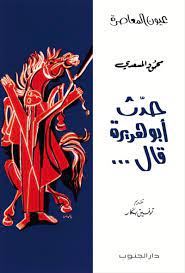Mahmoud Messadi was a Tunisian author and intellectual who also served as Minister of Education and Minister of Culture. He is one of the most prominent Tunisian novelists of the 20th century. After completing high school in Tunis in 1933, he travelled to Paris to study Arabic language and literature at the Sorbonne University. His PhD dissertation was on Abu Nuwas, and he prepared a second dissertation on the rhythm of classical Arabic poetry.
In addition to teaching at universities in both Tunisia and France, Messadi was involved in politics and participated in the negotiations with France for Tunisia’s independence in 1955. Following independence, he served as a member of parliament from 1959 until 1981. Messadi worked closely with Tunisia’s first president, Habib Bourguiba, on education policy. He served as Bourguiba’s minister of education from 1958–1968 and as minister of culture from 1973–1976. This era in Tunisia was known for far-reaching educational reforms under the newly independent government, and many of these policies came to be known as the “Messadi plan”.
Messadi wrote his important works between 1939 and 1947. They reveal the Qur’anic influence on his intellectual and belief formation and on his style.

